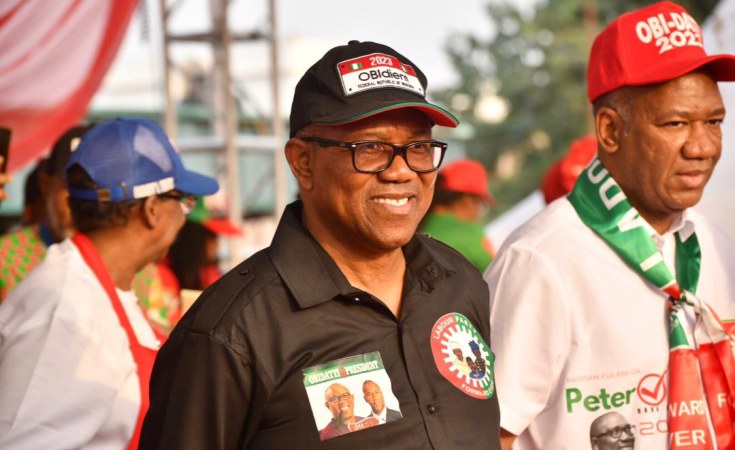Logistical challenges marred the poll in some areas.
Despite the Independent National Electoral Commission (INEC) expressing commitment to ensuring that the ongoing general elections are credible and successful, several abnormalities from the commission and its officials hampering voters' participation have erupted across voting stations in the country.
While large turnouts of voters were recorded in some parts of the country, late arrival of voting materials to polling units, malfunctioning of the BVAS devices and different degrees of rancour among others have disenfranchised many accredited citizens from exercising their civic rights so far.
Observers deployed by PREMIUM TIMES and the Center for Journalism Innovation Development (CJID) and other civil society groups across Nigeria's 36 States have observed that the poor conduct of INEC officials and ad-hoc staff across polling units contributed to low turnout of voters across in the country.
Late arrival of sensitive materials, poor conduct of INEC officials hampers voting process
PREMIUM TIMES gathered that several thousands of voters who had turned out in mass to cast their votes across many polling units in the south-south regions of the country were discouraged by the late arrival of sensitive materials by the INEC officials.
For instance, at Asnogbakiri polling unit 14 of Brass local government area in Bayelsa State, our observers on the ground observed that the centre was without any voters due to late arrivals of voting materials.
The Presiding Officer at the polling unit said out of 384 registered voters just 14 voters were accredited and had voted within the stipulated voting period allotted.
Agents on the ground said that the late arrival of sensitive materials made the voters go home angrily.
A similar situation was also recorded at polling unit 16 (Micah-kiri Open Space) of Brass LGA. At about 4:34 p.m., the presiding officer of the centre said only two accredited voters voted out of 373 registered voters of the unit.
An agent of a party attributed the low turnout to the change of venue as the initial place was marked unsafe.
Meanwhile, at polling unit 005 (Dogiye Polo Open Space), only 34 voters were accredited as of 4:53 p.m. of Brass 2 ward in Bayelsa State.
The presiding officer at the unit attributed the low turnout to the argument that erupted due to the unavailability of original and duplicate result sheets at the centre before the accreditation process began, causing the voters to return home.
In Borno State, the vice-presidential candidate of All Progressives Congress (APC), Kashim Shettima, alongside several accredited voters, were unable to cast their votes at their polling Unit early due to the late arrival of polling materials and officials.
Mr Shettima who eventually voted at his Shettimari unit, described the delay as "normal" and that it could have been as a result of the huge tasks involved in organising elections in a populous country like Nigeria.
Also, terrorist attacks and lingering fears of insurgent attacks have affected voting processes across states in the North eastern regions of the country coupled with the naira scarcity in the country.
In Adamawa, while voting was ongoing, the INEC Presiding Officer at Polling Unit OO6, Lamurde Ward of Mubi South LGA of Adamawa decided it was time for prayers.
At 2:26 p.m., he took the sensitive electoral materials with him to the mosque. Dozens of voters, still in the queue, expressed their frustration but waited for his return as voting could not proceed.
Also, a myriad of challenges which prevented accredited voters from voting has been encountered across some polling units in Lagos, Delta, Edo, Imo and Katsina States among others, resulting in the postponement of elections in some of these states.
Cash scarcity effect
In Abuja, INEC's inability to pay several drivers contracted to convey electoral materials to various polling units within the Federal Capital Territory, Abuja, prevented the timely commencement of elections across polling units in some area councils in the capital city.
The drivers were seen and heard demanding a cash payment to begin work. In a video clip published on Yiaga Africa's official Twitter page, drivers were seen lamenting as they refused to transport the voting materials because INEC refused to pay them in cash.
Based on the aforementioned observations that have truncated the electoral process so far, some civil society groups called for an extension of voting hours in some of the affected states and polling units.
This was further acknowledged by the INEC chairman, Mahmood Yakubu, while briefing journalists in Abuja.
He said there was a late arrival of electoral officials and materials in many polling units across Nigeria, adding that thugs attacked two different polling units in two states in Nigeria, stealing at least eight BVAS machines.


